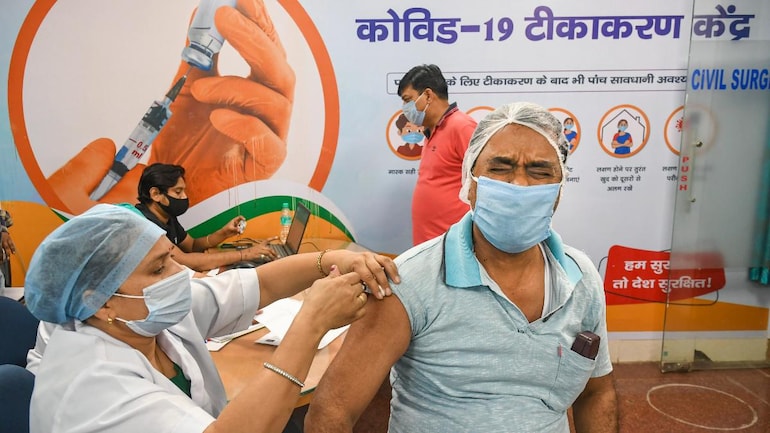
All you need to know about Centre's revised vaccination guidelines
In tandem with the Centre's decision to revert to the system of being the primary agency to procure COVID vaccines, the government of India on Tuesday (June 8) has issued revised guidelines for the national COVID-19 vaccination programme to be implemented from June 21.

In tandem with the Centre’s decision to revert to the system of being the primary agency to procure COVID vaccines, the Centre on Tuesday (June 8) has issued revised guidelines for the national COVID-19 vaccination programme to be implemented from June 21.
According to the new guidelines, the Centre will procure 75 per cent of the vaccines manufactured in the country and provide it to the states/UTs free of cost as was being done earlier at the start of the National Vaccination Programme. However, the vaccine doses provided free of cost by the government of India will be allocated to states/UTs based on criteria such as population, disease burden and the progress of vaccination.
The guidelines also make it clear that any vaccine wastage will negatively impact the allocation to the state.
Also read: Centre takes control of vaccination, offers free jabs for all citizens aged 18+
Moreover, the government of India will provide states/UTs with advance information of vaccine doses to be supplied to them. And states/UTs should further allocate these doses well in advance to districts and vaccination centers and publicise the availability much before. This information will be disbursed at the district and vaccination center level, to ensure their visibility and convenience of citizens.
The copy: RevisedVaccinationGuidelines
Private hospitals
To encourage private manufacturers, domestic vaccine manufacturers are provided the option to also provide vaccines directly to private hospitals. This would be restricted to 25 per cent of their monthly production.
States/UTs would aggregate the demand of private hospitals maintaining an equitable distribution between large and small private hospitals and regional balance. Based on this aggregated demand, the GOI will facilitate supply of these vaccines to the private hospitals and their payment through the National Health Authority’s electronic platform, said the new guidelines.
Also read:Covishield vaccine produces more antibodies than Covaxin, says study
This would also help smaller and remoter private hospitals to obtain timely supply of vaccines, and it is equitably distributed. However, the price of vaccine doses for private hospitals would be declared by each vaccine manufacturer, and any subsequent changes would be notified in advance. The private hospitals may charge up to a maximum of ₹150 per dose as service charges and this pricing has to be monitored by the state governments.
Priority groups for vaccination
The guidelines list the order of the groups to be prioritised for vaccination:
- Healthcare workers
- Frontline workers
- Citizens more than 45 years of age
- Citizens whose second dose has become due
- Citizens 18 years & above
For the citizens who are 18 years and above, the states/UTs may decide their own prioritisation factoring in the vaccine supply schedule.
Vaccine registration
While, the CoWIN platform provides “convenient and safe” pre-booking vaccination appointments, the Centre wants all state government and private vaccination centers to provide an onsite registration facility. The details of which have to be finalised and published by states and UTs. States may also utilise the Common Service Centres and Call Centres to facilitate prior booking by citizens as much as possible.
Meanwhile, quoting Finance Ministry sources, NDTV reported that the Centre’s decision to provide vaccines free of cost to all its citizens will cost around ₹ 50,000 crore and the government has the money.
The sources alleged that the government doesn’t need supplementary grants immediately as there are enough funds. “We may have to go for this in the second round, near the winter session of Parliament. At present we have the money,” said Finance Ministry sources.


